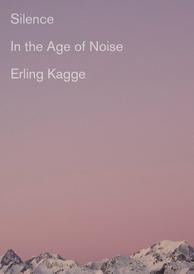 Next week, I'll leave my relatively quiet life in upstate New York and spend a few days conversing with--but mostly listening to--booksellers, authors, publishers and other bookish folk at the American Booksellers Association's Winter Institute, which is being held this year in Memphis, Tenn. Wherever we are at any given moment, we'll probably be talking books. All books all the time. It's a little taste of paradise.
Next week, I'll leave my relatively quiet life in upstate New York and spend a few days conversing with--but mostly listening to--booksellers, authors, publishers and other bookish folk at the American Booksellers Association's Winter Institute, which is being held this year in Memphis, Tenn. Wherever we are at any given moment, we'll probably be talking books. All books all the time. It's a little taste of paradise.

|
|
| Opening reception at last year's Winter Institute. | |
The mystical OtherWorld of book industry conferences and trade shows is like a suspended state of time and reality, featuring practical advantages over real life (room service, daily housekeeping), as well as a mass gathering of people who care deeply about books and aren't afraid to say so out loud. Encounters range from casual chats over drinks to public colloquies during education sessions; from early morning, bleary-eyed exchanges at author breakfasts to mobile dialogues as we all move from one scheduled event to the next.
While Wi13 is about discussions, and I'll have my share, my primary job will be listening carefully. I may also be told things in confidence that inform--and sometimes alter or enhance--my perspective on the book trade. I won't, however, tell you about these chats, even though they're every bit as important as the "on the record" quotes I do share. This is not so much about protecting sources as honoring the spirit of conversation by recognizing a clear borderline.
Listening is key. I think I'm a good listener. I love the fact that listen and silent share the same letters. And while silence may seem like an odd skill to cite when writing about attending a "conference," which by definition assumes there will be ongoing discussion, I'm pretty adept at silence as well. Oddly, a tendency toward the silent life can actually be a strength in my line of work, as it used to be when I was handselling as a bookseller. A paradox is probably lurking in the weeds there, but somehow it all works out.
How did I handsell? I listened and made recommendations. How will I write about Wi13? Same drill. I'll listen and respond. Maybe I've always been in the listening business.
 What sent my mind spinning in this direction is no mystery. I've been reading Erling Kagge's recent book, Silence: In the Age of Noise (trans. by Becky L. Crook, Pantheon). He notes at one point that, during his travels to Japan, he learned something important about the role of silence in conversation: "For while we Norwegians experience silence in a conversation as something that cuts it off--a good journalist knows that the best moments in an interview often come just after they have put away their laptop or voice recorder and officially ended the interview--silence in Japan comprises a significant portion of the conversation.... The silence seems to be just as rich in its content as the words."
What sent my mind spinning in this direction is no mystery. I've been reading Erling Kagge's recent book, Silence: In the Age of Noise (trans. by Becky L. Crook, Pantheon). He notes at one point that, during his travels to Japan, he learned something important about the role of silence in conversation: "For while we Norwegians experience silence in a conversation as something that cuts it off--a good journalist knows that the best moments in an interview often come just after they have put away their laptop or voice recorder and officially ended the interview--silence in Japan comprises a significant portion of the conversation.... The silence seems to be just as rich in its content as the words."
I suspect many of us quiet types had something of a learning curve to become excellent handsellers. We learned how to read an ARC not just for our own pleasure, but with other potential readers/customers in mind. We learned to ask ourselves if this was a book we could imagine placing in the hands of talented readers as if we were offering them the most precious gift in the world. We learned to listen to our customers before we handsold them a title. We asked questions, processed the answers and decided what titles might interest them before making recommendations. We realized that the art of conversation was enmeshed in the art of listening, and trumped the lesser art of literary evangelism every time.
Based upon years of unscientific observation, I know our business has a substantial number of people who could be described--and would probably describe themselves--as "quiet." So would many of their customers. A life of reading books can do that to a person, but I won’t fall down the rabbit hole of chicken v. egg or nature v. nurture. I'll just quietly submit the increasing popularity of Silent Book Clubs (see BookBar in Denver, Colo.) as at least one shred of evidence. You take it from there.
"It's easy to think silence is about turning your back on the world," Kagge told the New York Times not long ago. "For me, it's the opposite. It's opening up to the world, respecting more and loving life." I'll try to remember that next week in Memphis. And if I seem a little quiet at times during our conversations, don't worry. That's just me listening.

